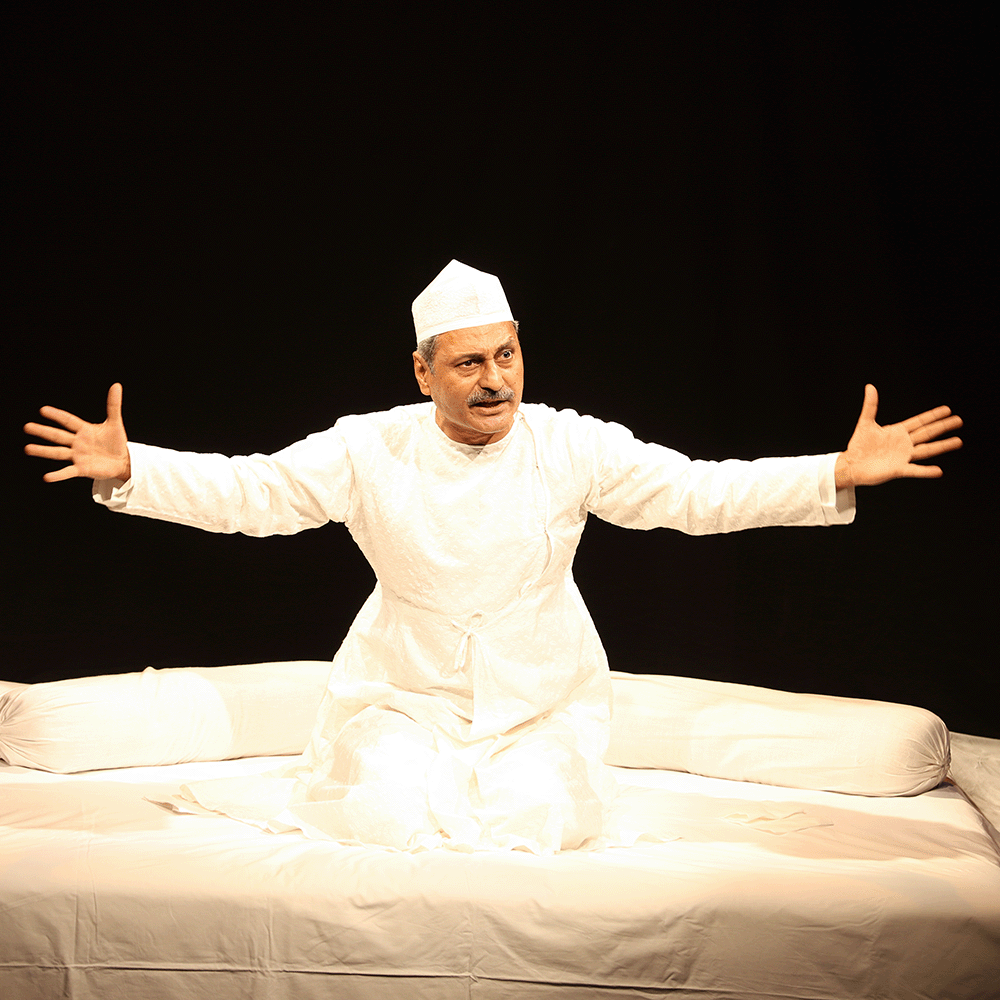Dastangoi is an art of storytelling. It developed around the stories of valour and adventures of Amir Hamza, an Arab hero, a thousand years ago but soon these stories spread out and the tradition could be found right from Bosnia, Morocco, Algeria to Indonesia and China. However, these stories became very popular when they entered the Urdu canon and the art form as known to us reached its zenith in 19th century North India. With the demise of Mir Baqar Ali, the last known exponent of the art form, in 1928, the form also died with him. The revival is an effort of two gentlemen, SR Faruqi, the noted Urdu litterateur, and Mahmood Farooqui, who conceived the modern format of the art form.
Dastan-e Karn Az Mahabharat
Extending to over 2 hours Dastan-e Karn Az Mahabharat is one of the most ambitious solo storytelling performances staged in modern India. Unlike the Ramayana, oral recitations and performance of the Mahabharata are rare and they are rarer still in Urdu.
The Dastan draws upon the Razmnama, the Persian translation of the Mahabharat commissioned under Akbar, the 300-year-old Urdu verse Mahabharata translation by Tota Ram Shayan, Ramdhari Singh Dinkar's Rashmi Rathi, Shivaji Sawant, Intizar Husain, Irawati Karve, the Quran, Urdu versions of the Gita, and several other writings.
The last question Karna asked as he lay dying in Krishna's lap was whether he would be as famous as Arjuna, and Krishna replied that his fame will last longer than Arjuna's. This Dastangoi presentation on the great Karna engages with the original Sanskrit Mahabharat and Persian, Urdu, Hindi and Marathi writings on the life and times of one of the greatest heroes ever produced by Hindustan Jannat Nishan.
Mahmood Farooqui is an Indian writer, performer, and director. Farooqui began reinventing Dastangoi, the 16th-century Urdu oral storytelling art form, in 2005. Since then, he has performed thousands of shows across the world. His book Besieged: Voices from Delhi 1857 was awarded the Ramnath Goenka prize for the best non-fiction book of the year. He was also a researcher for The Last Mughal, a book by William Dalrymple.
